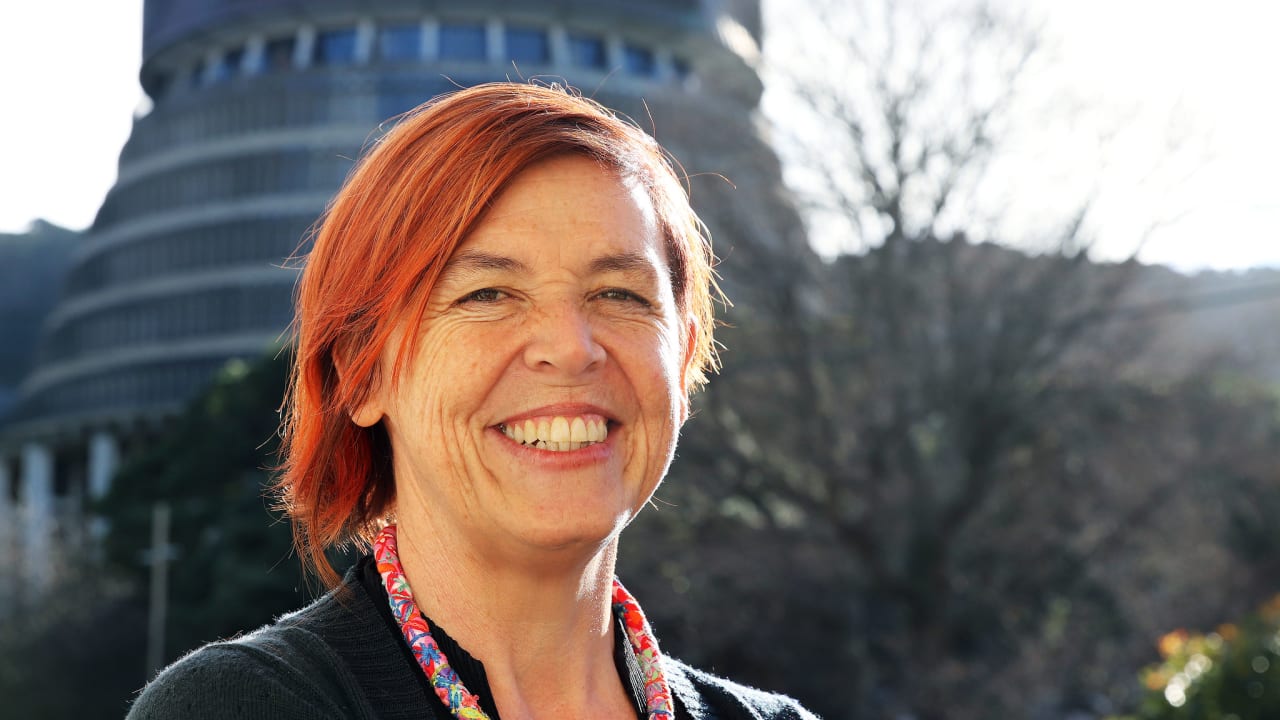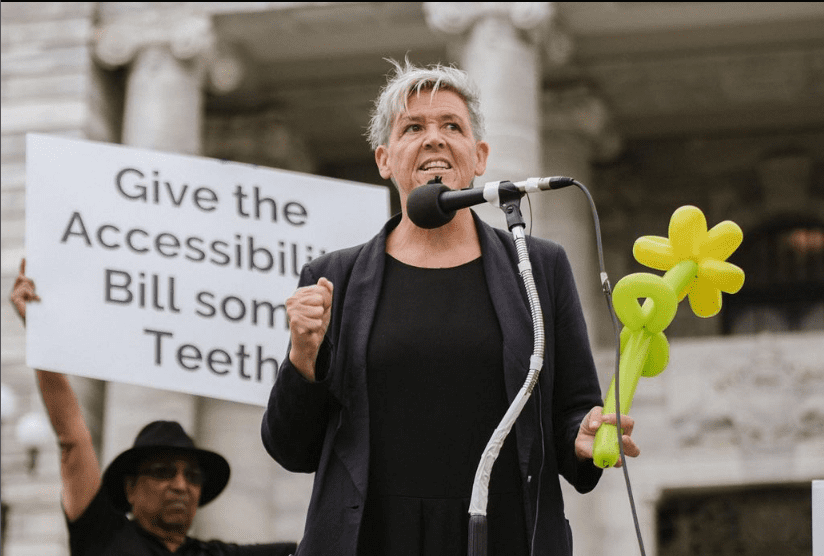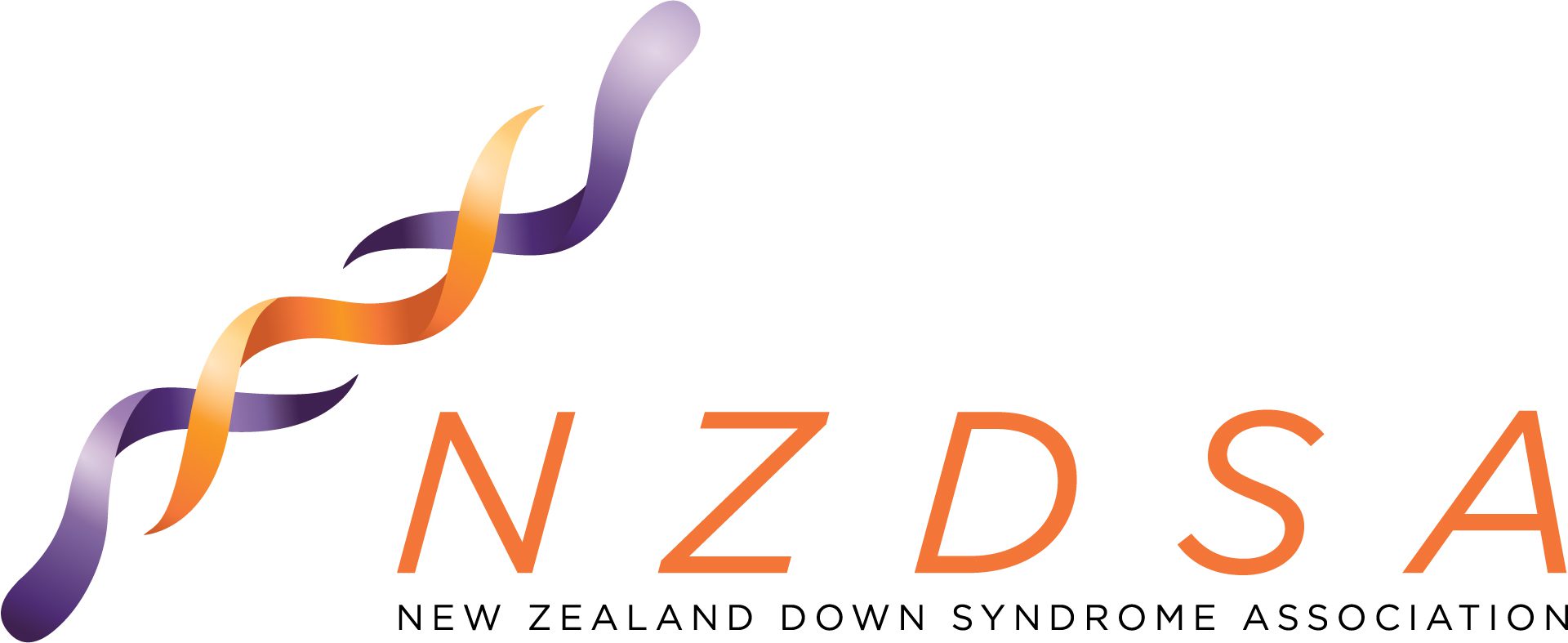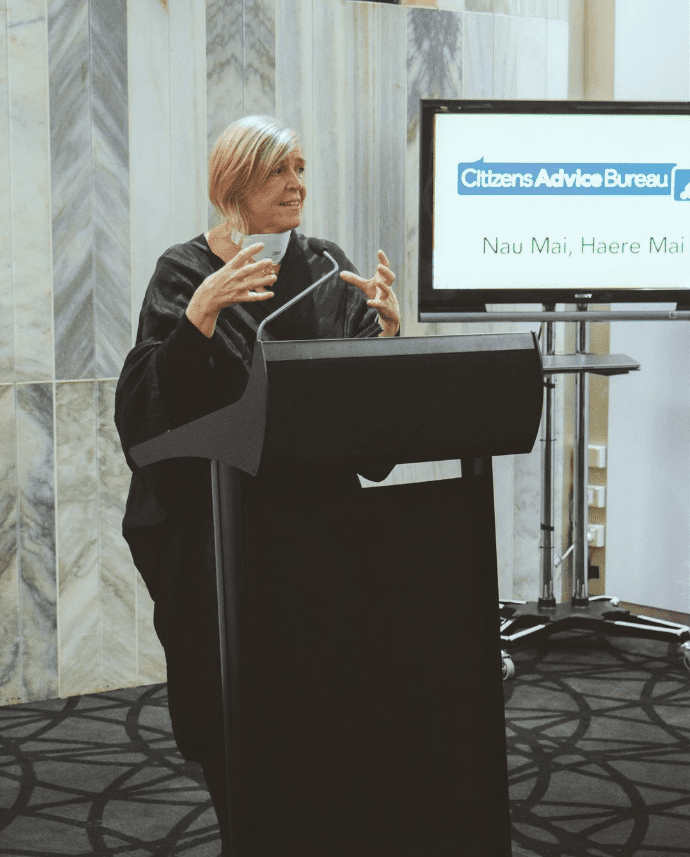
Jan Logie has been a Member of Parliament for the Greens since 2011. Originally from Invercargill, she studied at the University of Otago and now lives in Porirua. As well as being party spokesperson for disability, she also holds the ACC, Child Poverty Reduction, Children, Public Services, Te Tiriti o Waitangi, Women, and Workplace Relations and Safety portfolios.
Logie explains that all her portfolios connect, and that she tries to incorporate the interests of disabled people in everything she and her colleagues do. “We work with disability organisations, firstly through the Inclusive Greens within the Green Party – which is super helpful for guiding me in my work, because
…the way I try and approach the work is consistently ‘nothing about us without us.’
For me, as someone who doesn’t identify as having a disability, it means that I’m trying to ground everything I do with people who have lived experience.”
She also spends as much time as she can working with organisations such as Access Matters and People First, for example when it comes to the Accessibility legislation that is currently going through Parliament.
“My very first term in politics I did a tour around the country with a colleague around economics and politics and how do we change so the systems work for all of us? People First had a speaker at every single one of these events about the rubbish reality of working a full-time job and still having to deal with Work and Income – the lack of respect.
When I go around the country and touch base with communities, I’ve been trying to go out and meet with different disability organisations and providers to try and get that sense of the national voice as well as local issues and realities.”
Highlights for Logie from the recent Budget include the removal of the minimum wage exemption and extensions to Total Mobility. She was, however, concerned that the new Ministry Whaikaha wasn’t receiving the funding it needed to achieve its remit.
“I really want to acknowledge that from a government’s perspective it’s a really critically important piece of work and it is complex, but I worry that we’re not yet seeing the kind of drive to get the changes in place and deal with some of those gnarly issues.”
She’d also hoped to see more in the way of increases to benefits for those living with disability.
“We have so much evidence in terms of the impact of poverty and how entrenched that is for disabled people and families impacted by disability, that I am really gutted that we haven’t yet seen anything specifically to address those levels of poverty for disabled people.”
Within her ACC portfolio, Logie is keen for reform. She points out that when ACC was initially established, it was set up as a first stage, with the idea that ultimately all situations where rehabilitation, social support, income compensation and other things would be covered, not just when a specific accident was the root cause.
“We know the boundaries of the scheme are imbedding inequities by the cause of disability and also that disabled people are struggling to access the scheme for genuine accidents. The number of stories I’ve seen where people’s injuries have been overlooked because of assumptions and biases within the health system, or they’re told – far too often on dodgy medical grounds – that it’s somehow connected to your condition. Which I do not believe is consistent with how the scheme was intended or the public good, let alone the rights of the people involved.”
Logie has spoken passionately in the past about the need to enforce the rights of disabled people and has several ideas as to how this could be progressed.
“I support the need for there to be more social marketing to address discrimination. I think there’s a lot of work to do as a country in terms of getting our heads around the value of diversity in lots of different ways.
Recognising people with Down syndrome might also be Māori or Pasifika or women or queer and there’s intersection. As a country I think we’re coming to that point where we’re getting ready to have those conversations.

Logie accepting the Access for All petition at Parliament
“Looking at the Accessibility legislation that’s going through parliament at the moment, [the Greens] are supporting the call for standards to be able to be set and legally enforceable, because even where we’ve got them they are unenforceable. Our schools are supposed to be inclusive by legislation for example, and yet…
“The ERO report on the inclusiveness of our education showed that it’s not necessarily about the amount of money that the schools have because poorer schools are showing that they are often more inclusive – I feel like that needs to be repeated often. There was that recommendation for an independent oversight, and I think that’s really important, because this has just drifted for decades.
“Our building code is the same. Accessibility standards are not being met because there is no consequence. And I get that you don’t necessarily jump to consequences before you’ve done the education, but we’ve been having this conversation for a very, very long time, and when some are doing it and others are not, that really starts to look like a conscious choice, and that sits very badly with me.”
The Greens are predominantly known for being an environmentalist party, so I asked Logie how environmentalism supported people with Down syndrome.
“This is a little bit of a weird answer – but I think in terms of us and environmentalism, it’s about recognising that the world is an ecosystem and humans are part of that, and an ecosystem needs diversity. So that means that when we’re looking at communities and people, that’s also part of our thinking – how do we support this diversity to thrive – as opposed to shutting things down or having a one-size-fits-all.
“So, I think our environmentalism is part of why we’re so passionate about this work [in the disabilities sector]. We want everyone to be a part of this work towards a future where we’re living in balance, avoiding catastrophe. Then it’s the smaller things like making sure there are walks in nature and people can get into wild spaces that are accessible to a range of people’s needs and that the information about that is in a format that people find understandable. It’s about that integration of it all.”
When it comes to the new Ministry Whaikaha, Logie was hopeful, and keen to see it develop further.
“I think it’s a really crucial important step. I’m really hopeful about it. My concern is whether it is independent enough. I have so much respect for the CE [Paula Tesoriero, former Disability Rights Commissioner] and have great experiences of being at the other end of her advocacy when she was at the Human Rights Commission. That work of being that person to champion change across the public sector from the inside is useful, but I do worry a bit in terms of the roll out of Enabling Good Lives and the role of system change and monitoring. How do you monitor yourself?”
Logie described her ideal election result as being a strong Green Party with around 15-20 MPs supporting a Labour-led Government. If that happened, she had high hopes for what her Party could deliver for people with Down syndrome.

